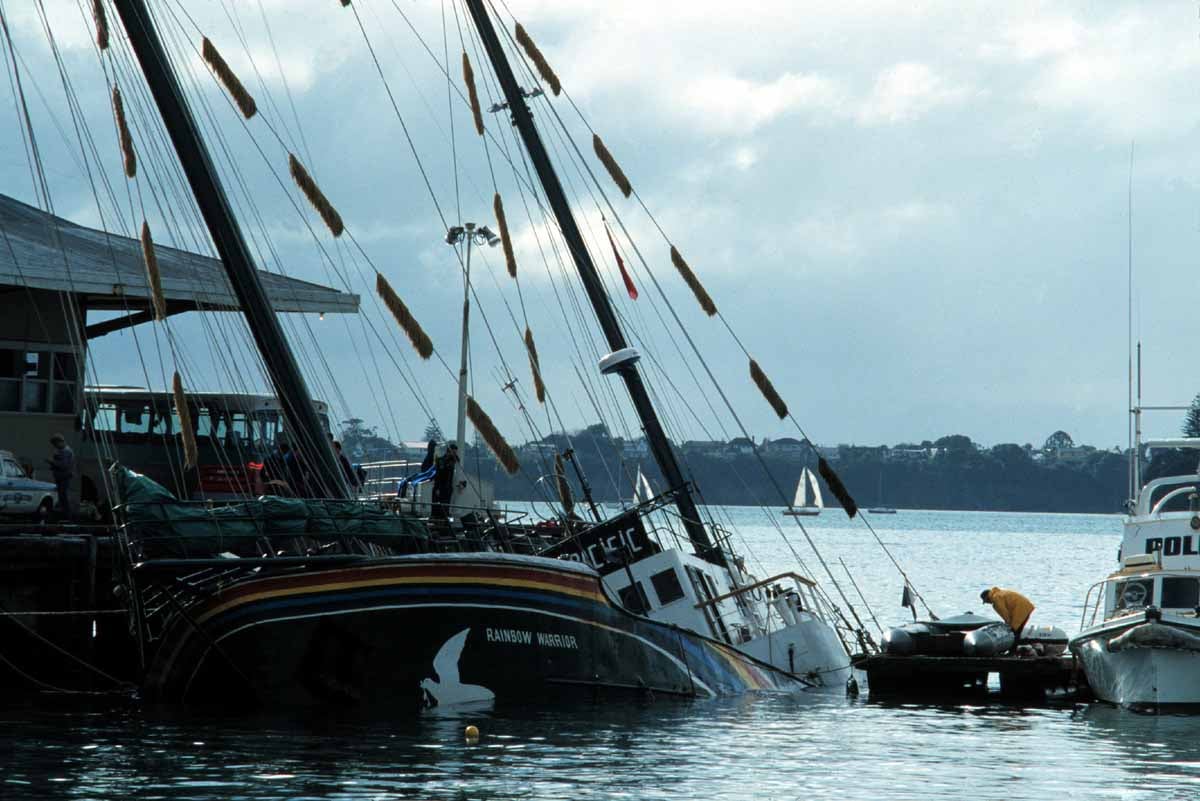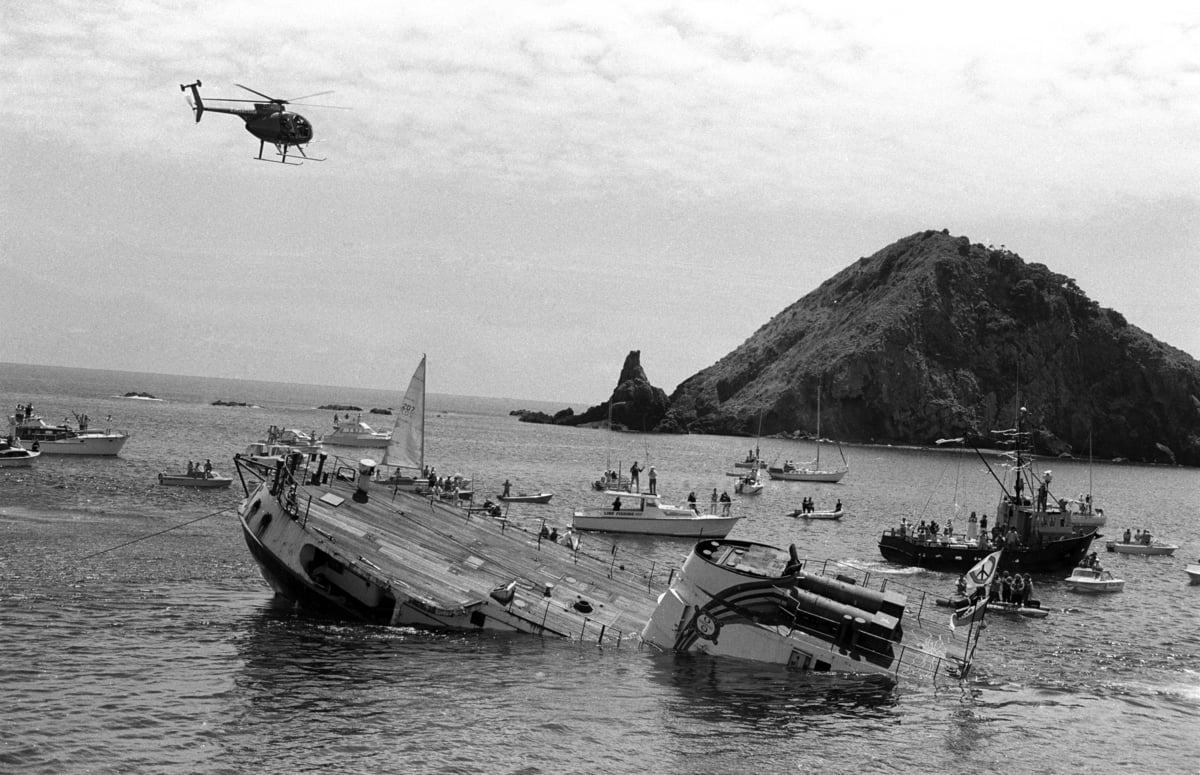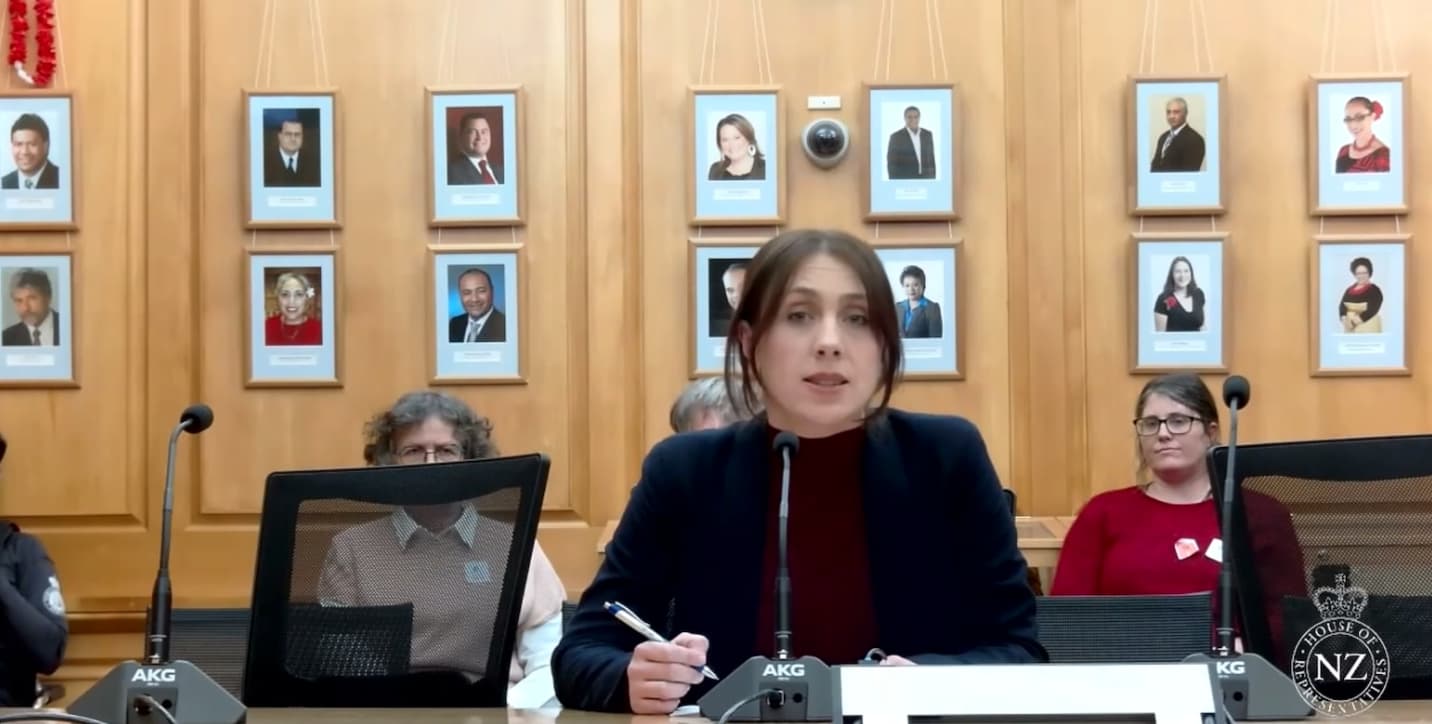Yesterday was the International Day of the World’s Indigenous Peoples. Maybe you didn’t realise, but don’t worry – it’s not too late to acknowledge! If you could do just one thing this week, it should be deepening your understanding of Indigenous Peoples’ worldviews and lived experiences as they relate to the earth, our ocean and waterways and all living beings.
This understanding can only be learned by listening to indigenous voices and allowing these perspectives to lead us back to regenerative ways of living that can protect our planet and mitigate the climate emergency that capitalism and colonialism have propelled us into.
What is it?
August 9 commemorates the first meeting of the United Nations Working Group on Indigenous Populations back in 1982. Since then, we’ve seen the adoption of the United Nations Declaration on the Rights of Indigenous Peoples, a universal framework of minimum standards for the survival, dignity and well-being of the Indigenous Peoples of the world. It elaborates on existing human rights standards and fundamental freedoms as they apply to the specific situation of Indigenous Peoples.
Earlier this year I attended the second round of talks on a Global Plastics Treaty, held at UNESCO in Paris. Even at a United Nations meeting, Indigenous Peoples as rights holders and communities on the frontline to plastic pollution were marginalised. The treaty is at risk of being weak and ineffective if the lived experiences, worldviews and knowledge of the most affected groups, including Indigenous Peoples, are not centred in the creation and implementation of this global instrument.
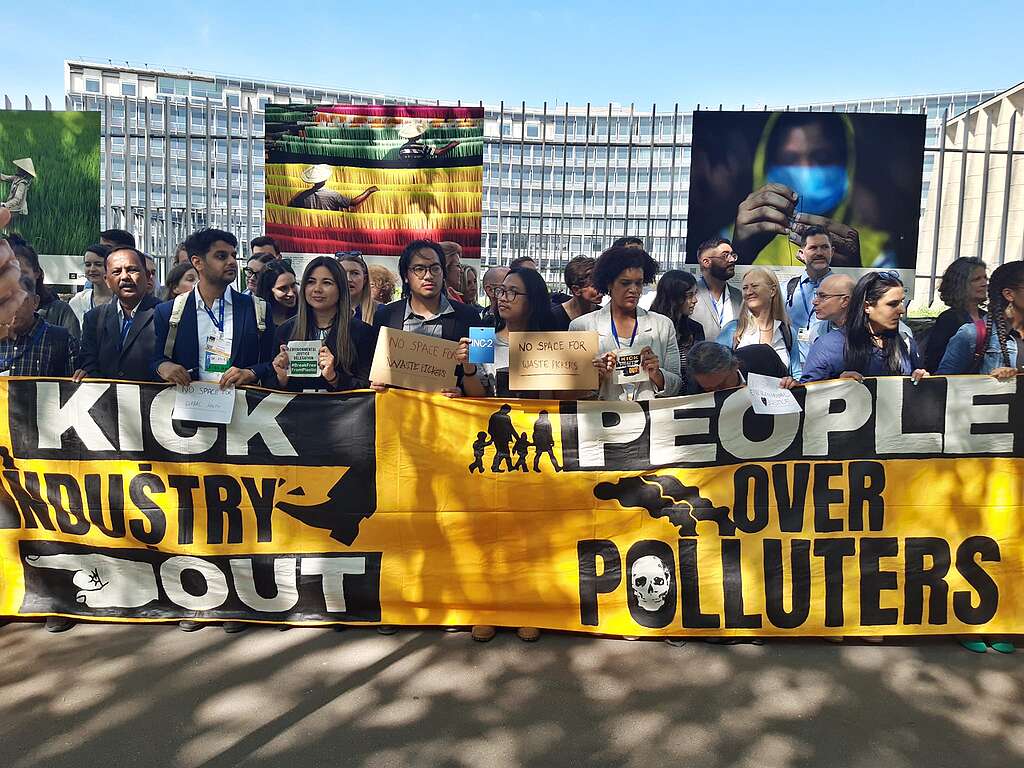
Why does it matter?
As Indigenous People, we know our livelihood is inextricably linked to that of the land and sea. As a Māori and Pacific person, I am taught through our pūrakau (stories) and whakataukī (proverbs) which speak to our creation and our ancestors’ lives and lessons. These are all centred around the whenua (land) and the moana (sea) and our treasured wildlife. All of these, and us, have mauri, and mauri is impacted by its surroundings, and vice versa.
We are Moana people. You will hear many of us say that our homes are more ocean than land. Not only is it the setting of stories of our existence and being, it’s also the home of kaitiaki that look after us, the provider of our sovereign diet and our connection to each other across the Pacific and the migration journey of our shared ancestors. When the mauri of the moana is adversely affected by plastic pollution, we know it.
When we talk about land from a Te Ao Māori worldview, we don’t see something that can be mined and taken from. We see Papatūānuku, our Earth Mother, and we treat her as such. If we hope to protect wildlife and take climate action, what leadership would be better than that which regards our planet like a child looks to their mother?
Greenpeace demands an ambitious Global Plastics Treaty that will end runaway plastic production and use. We know an effective treaty must be firmly rooted in a human rights-based approach that reduces inequality, prioritises human health, and centers justice in its creation and implementation. Indigenous Peoples from around the world must be at the decision-making table, leading discussions with indigenous knowledge and solutions.
Since colonisation, the dominant culture has forced upon us an exploitative, linear economy that takes, makes and discards. Successive governments, decision-makers, informed by capitalistic and colonial values, have enforced this destructive way of living over indigenous ways of living that were circular and regenerative.
Even within the United Nations environments, colonialism and racism pervades. Despite the passion and perseverance of Indigenous Peoples from across the world who wish to contribute to treaty discussions and generously share their knowledge, nothing about their participation in the negotiations in Paris was easy. Often at a disadvantage from decades and centuries of generational trauma, even funding and ability to travel away from their communities is hard to access.
On the ground in Paris, our working group of Indigenous Peoples had side events denied and struggled to get speaking rights in Plenary. My worldview is one that looks to honour my tupuna (ancestors), personify tika, pono and aroha as much as I can, and protect future generations. I am driven to do what I do not for myself but for the generations to come. I came to learn that with our Indigenous Peoples Working Group, this driver was a common denominator amongst us. And that sense of responsibility compelled us to take space when it wasn’t freely shared with us.
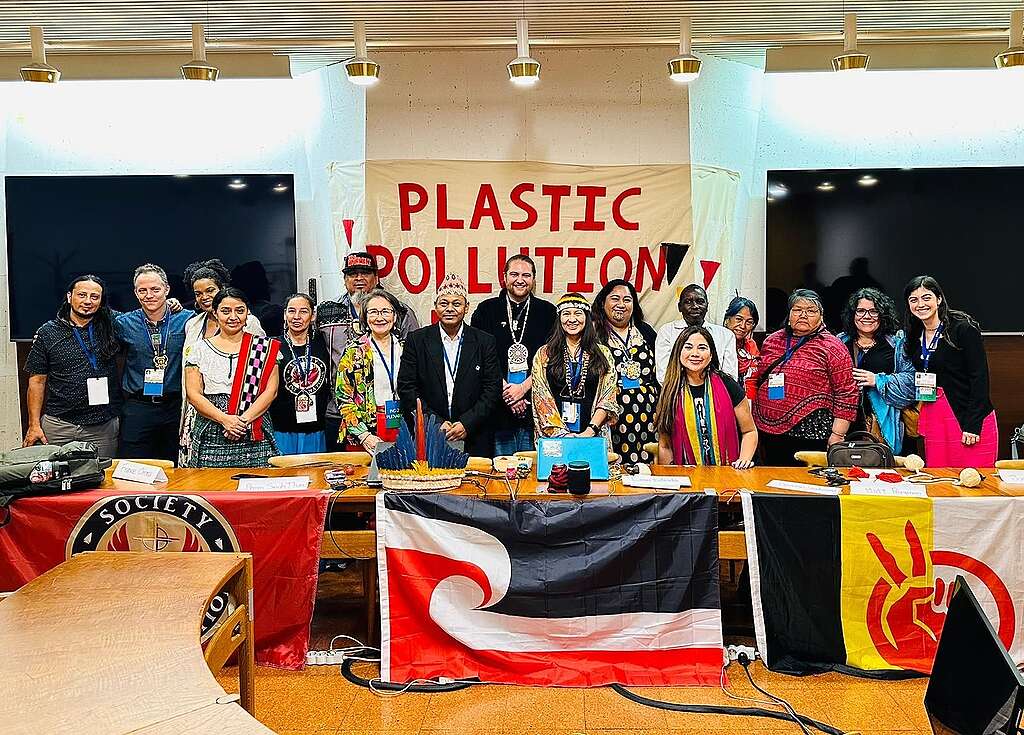
Our hope is to encourage people to challenge themselves to see things from a different point of view, to be open-minded. The intention is not to have all people see the same thing, but rather all people accept that different people see differently and together a deeper understanding is gained. And only with that deeper understanding can we best address these important and complex issues!
Are you ready to go a little deeper? Here are a few actions I recommend:
- Follow Tina Ngata on social media, and subscribe to her site
- Learn about the history of the land you live upon, and the lives of its original custodians
- Get involved with your local iwi and hapū restoration initiatives like tree planting, it’s a great way to hear local stories and hear indigenous perspectives
- Look up, read, share and cite anything written by Māori lawyer and human rights activist Moana Jackson
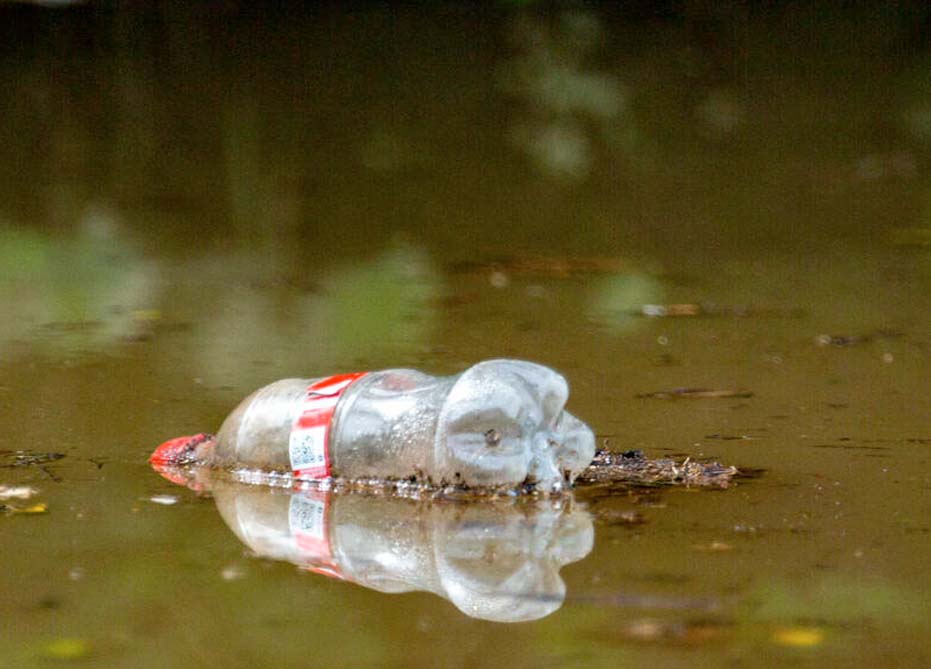
Call on the NZ Government to stand firm and support a strong global plastics treaty.
Take Action

